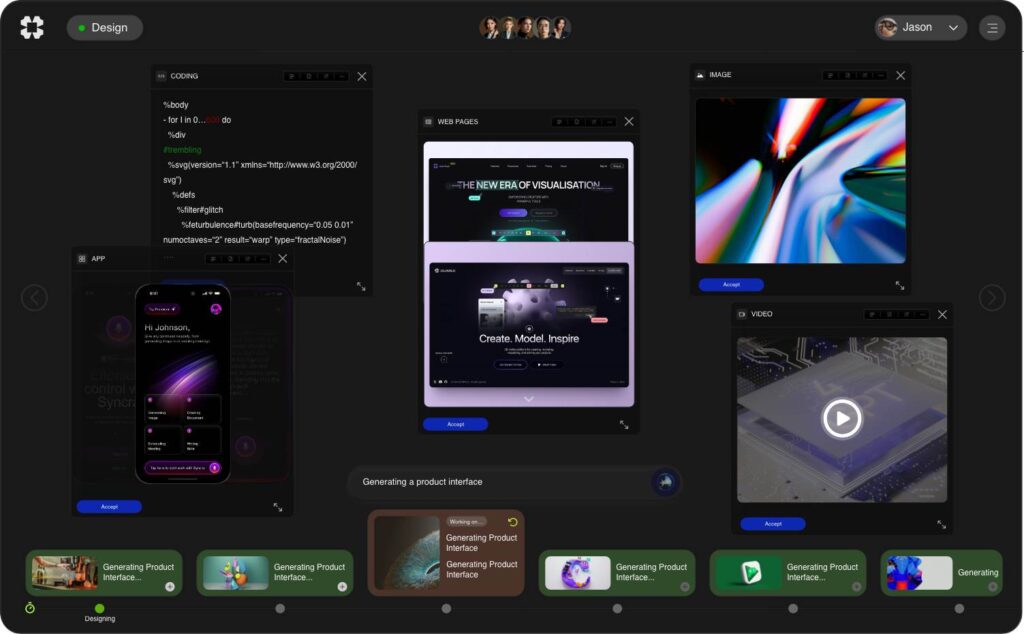The advent of artificial intelligence (AI) has dramatically reshaped various industries, leading to enhanced efficiency, improved decision-making, and a more personalized user experience. Among the countless applications of AI, virtual assistants and predictive analytics stand out as major game-changers. This article delves into the emerging trends and solutions facilitated by AI in these areas, alongside practical insights and use cases that highlight their industry applications.
.
**AI Virtual Assistants: The New Face of Customer Interaction**
AI virtual assistants have become integral to how businesses engage with customers. By leveraging natural language processing (NLP), these assistants can understand and respond to queries in real-time, providing users with a seamless interaction experience. Companies like Amazon with Alexa, Google with Google Assistant, and Apple with Siri have set a benchmark for virtual assistant capabilities, but the application is expanding beyond consumer products into business environments.
.
One significant trend is the rise of AI-powered chatbots. Organizations are increasingly adopting chatbots for customer service, handling queries 24/7, and reducing response times. According to a report by Business Insider, consumer spending via voice assistants is expected to reach $40 billion by 2022, illustrating the growing acceptance and reliance on these technologies.
.
Moreover, the integration of virtual assistants into departmental processes—such as HR, sales, and marketing—demonstrates their versatility. For example, HR departments use virtual assistants to streamline the recruitment process. By automating candidate pre-screening, these virtual assistants save time for HR professionals and enhance the hiring experience for candidates.
.
**AI in Predictive Analytics: Making Data-Driven Decisions**
As businesses strive for a competitive edge, the need for actionable insights from data has led to a surge in the application of AI in predictive analytics. Predictive analytics involves using statistical algorithms and machine learning techniques to identify the likelihood of future outcomes based on historical data.
.
Industries such as finance, retail, and healthcare are harnessing the power of predictive analytics to optimize operations, manage risks, and enhance customer experiences. For instance, in the healthcare sector, predictive analytics is used to forecast patient admissions, allowing hospitals to allocate resources more effectively. A study from McKinsey & Company indicates that organizations using advanced analytics can boost their productivity by 5 to 6 percent, highlighting the economic benefits of these technologies.
.
Furthermore, businesses can leverage predictive analytics to enhance their marketing strategies. By analyzing consumer behavior, companies can tailor their marketing initiatives to target specific audiences more effectively. Brands like Netflix utilize predictive analytics to recommend shows and movies, enhancing engagement and user satisfaction.
.
**AI-Powered Virtual Teams: The Future of Work**
The COVID-19 pandemic has accelerated the shift to remote work, with many organizations relying on AI-powered virtual teams to maintain productivity. AI technologies facilitate collaboration and enhance communication among team members regardless of their physical location.
.
AI tools, such as project management software equipped with intelligent assistance, help teams track progress more efficiently. Features like automated reminders, resource allocation suggestions, and timeline adjustments ensure that projects stay on course. Additionally, virtual collaboration platforms such as Microsoft Teams and Slack are increasingly incorporating AI functionalities to streamline team communication and information sharing.
.
One intriguing aspect of AI-powered virtual teams is their ability to adapt and learn from evolving work patterns. By analyzing data on team interactions and project outputs, these systems can make recommendations on how to improve workflows, predict project risks, and even assess team member performance. Research by Gartner shows that organizations that adopt AI-based team management tools report a 30% increase in team productivity.
.
**Industry Use Cases: Real-world Applications and Success Stories**
1. **Retail Sector**: AI virtual assistants and predictive analytics have made substantial impacts in retail. Retail giants like Walmart employ AI for inventory management, predicting stock requirements based on purchasing trends. Virtual assistants can enhance customer engagement on e-commerce platforms, providing tailored product recommendations and facilitating purchase processes in real-time.
2. **Healthcare Industry**: The integration of AI in predictive analytics has revolutionized patient care. Institutions utilize machine learning algorithms to predict disease outbreaks and patient readmissions, enabling proactive measures. Virtual assistants assist healthcare providers in scheduling appointments, managing patient inquiries, and even tracking medication adherence.
3. **Finance**: In finance, AI-powered virtual assistants assist customers with their banking needs, managing transactions, and providing investment advice. Predictive analytics is used by financial institutions to detect anomalies in transaction data, preventing fraud before it occurs. This use case demonstrates a significant leap towards enhancing security while maintaining customer service quality.
4. **Manufacturing**: Predictive maintenance is a key area where AI can significantly reduce downtime and maintenance costs. By using predictive analytics, manufacturers can forecast when machinery is likely to fail and schedule maintenance accordingly. AI virtual assistants also support employees by providing instant access to troubleshooting guides and operational checklists.
.
**Challenges and Considerations**
Despite the promising developments in AI technologies, companies must navigate several challenges. Data privacy concerns remain at the forefront, as the reliance on large datasets for predictive analytics raises potential risks. Ensuring compliance with regulations such as GDPR and CCPA is essential for organizations adopting these technologies.
.
Additionally, there exists a learning curve when integrating AI solutions. Employees may require training to effectively use AI-driven tools, ensuring the technology is maximized for operational success. Cultivating a culture that embraces AI technologies will be crucial for companies looking to thrive in an evolving landscape.
.
**The Road Ahead: Embracing AI Innovation**
The future of AI-powered solutions looks promising. As technology continues to evolve, we can expect even more innovative applications of AI virtual assistants and predictive analytics. The ongoing development of natural language processing and machine learning will lead to more sophisticated virtual assistants capable of understanding context and sentiment, providing a more human-like interaction.
.
Moreover, as organizations increasingly turn to data for decision-making, the integration of AI in predictive analytics will further enhance their capabilities. The ongoing improvements in data accuracy and algorithms will empower businesses to anticipate market shifts better, enhance operational efficiencies, and drive profitability.
.
**Conclusion**
AI virtual assistants and predictive analytics are paving the way for a new era in industry operations. By leveraging these powerful tools, organizations can enhance customer experiences, make informed data-driven decisions, and foster collaboration through AI-powered virtual teams. As we embrace these technologies, understanding the associated challenges and proactively addressing them will be essential for realizing their full potential. The path forward is one of innovation and adaptation, where businesses can thrive by harnessing AI to meet the demands of an ever-evolving market landscape.
.
**Sources**
– Business Insider – “Voice Assistant User Trends and Consumer Spending.”
– McKinsey & Company – “The Impact of AI on Productivity.”
– Gartner – “AI and Team Management: New Frontiers.”
– Research Studies on AI Applications in Industry.

























